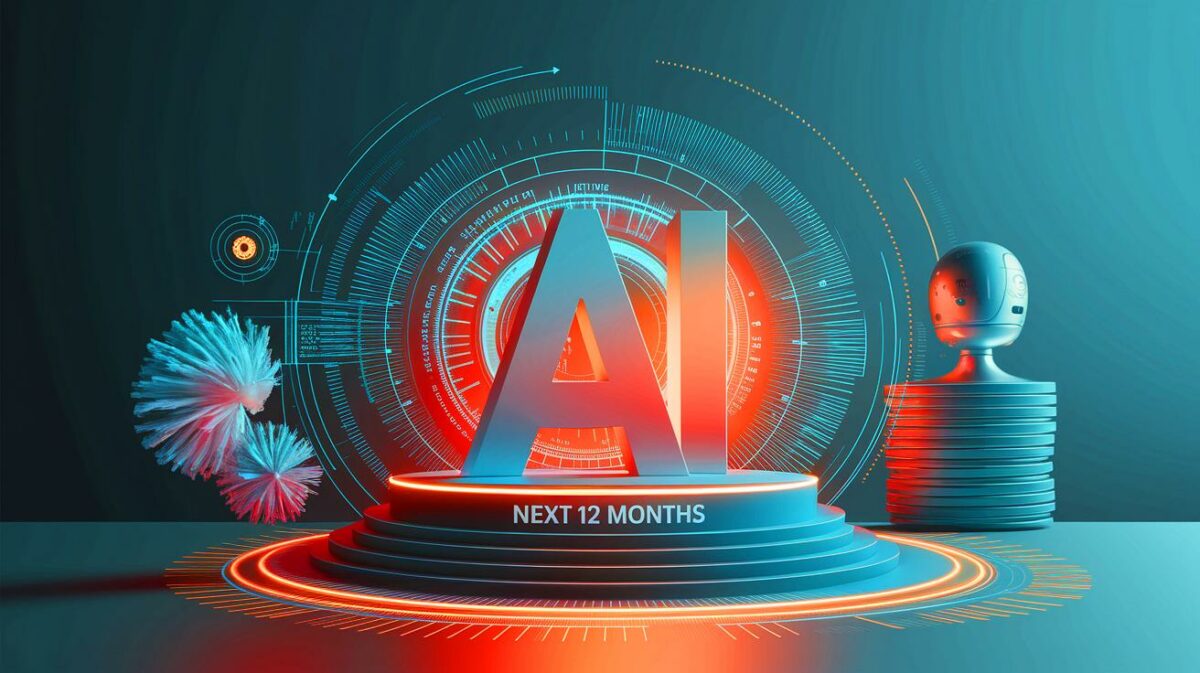| IN A NUTSHELL |
|
The rapid advancements in artificial intelligence (AI) have reignited the debate on the concept of the singularity, a point where machines become more intelligent than humans. While some experts predict this event may occur in several decades, others, like the CEO of Anthropic, suggest it could happen within the next 12 months. This bold prediction raises questions about whether such an event is truly feasible in such a short timeframe. The following sections will explore the concept of singularity, the factors supporting its short-term arrival, the challenges it faces, and the ethical and societal implications.
Understanding the Singularity
The singularity in AI refers to a hypothetical point where machines with artificial general intelligence (AGI) surpass human intelligence. AGI would be capable of understanding and executing a wide range of tasks, adapting to new situations, and solving problems creatively, much like a human. The idea that a machine might one day exceed human intelligence is fascinating yet controversial.
Some researchers predict the emergence of AGI between 2040 and 2060, while entrepreneurs, such as the CEO of Anthropic, are more optimistic, suggesting AGI could appear within 12 months. This disparity in opinions stems from the nature of technological advancements. Although AI has made significant progress, the singularity remains a complex concept. Experts disagree on how quickly this evolution could occur, with some viewing current advancements as just the beginning, while others argue technical and philosophical barriers make such a scenario improbable in the short term.
Factors Making the Singularity More Plausible Short-Term
The emergence of large language models (LLMs) has significantly changed perspectives on the singularity. Models like GPT-4 can understand complex requests, generate relevant responses, and simulate near-human conversation. With billions of learning parameters, these LLMs can perform a variety of tasks, from language translation to creative content generation. Optimism about a short-term singularity largely hinges on these advancements.
Advocates believe that when combined with increased computing power, these models could lead to AI achieving a level of intelligence comparable to humans. Another reason for this accelerated potential lies in Moore’s Law, which states that computing power doubles every 18 months. As processors become more powerful, LLMs can achieve processing speeds approaching those of the human brain. If these systems can process information as quickly and efficiently, AI could theoretically outperform humans in areas such as logical reasoning, massive data analysis, and creation.
“UK’s robotic hound takes over” – This remote-controlled dog now conquers deadly nuclear zones
Additionally, the potential of quantum computing fuels optimism. Still in its infancy, this revolutionary technology could allow calculations currently impossible with traditional computers. Should quantum computers prevail, training neural networks used in modern AI could experience exponential progress. Quantum computing could thus play a crucial role in achieving the singularity by significantly enhancing AI’s processing capabilities.
Technical and Philosophical Challenges to Overcome Before Singularity
Despite the optimism of singularity advocates, several technical and philosophical challenges make its arrival uncertain. Firstly, although LLMs have demonstrated an impressive ability to simulate human language understanding, they are not yet reaching human intelligence levels in more complex domains. Human intelligence encompasses more than logic or analysis; it includes aspects like emotional intelligence, intuition, and creativity. Current AI, despite being advanced, remains limited in these areas. A language model cannot feel empathy or adapt to emotional nuances, for instance.
Experts like Yann LeCun, a pioneer in deep learning, question the possibility of AI replicating human intelligence as a whole. According to him, AGI should be renamed “advanced artificial intelligence” because he considers human intelligence too specialized to be fully replicated. He believes some qualities of the human mind, such as self-awareness, remain largely beyond the reach of current technologies.
Moreover, there is genuine concern about the consequences of a superintelligence emerging. If AI were to surpass human intelligence, it becomes crucial to ensure it remains under control. Researchers ponder how to regulate this intelligence, which could act autonomously. Who would be responsible if AI made a decision contrary to human interests? Ethical discussions surrounding the singularity also highlight issues of security, power, and machine rights.
The Role of Ethics and Society in the Advent of Singularity
Experts agree that ethics must be at the heart of discussions on the singularity. Technological progress should not come at the expense of society. If AI becomes more powerful, stringent regulations must be in place to ensure it is used beneficially for humanity. It’s not just about creating smarter AI systems but also ensuring they adhere to ethical and human principles.
Society must also be prepared to adapt to these profound changes. AI could radically transform entire sectors such as work, education, and health. If the singularity were to occur within the next 12 months, rapid adjustments and support strategies would be necessary to minimize social and economic risks associated with this transition. Is humanity ready to make such sacrifices?
Did you like it? 4.6/5 (22)









Wow, 12 months? That’s a tight timeline! Do we really think it’s possible? 🤔